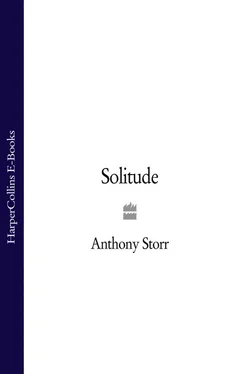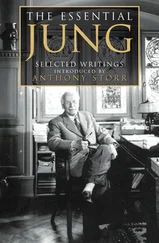Although major talent is rare, creative people remain human beings with the same needs and wishes as the rest of us. Because they leave behind records of their thoughts and feelings in their works, they exemplify, in striking fashion, aspects of human striving which are common to us all but which, in the case of ordinary people, escape notice. Perhaps the need of the creative person for solitude, and his preoccupation with internal processes of integration, can reveal something about the needs of the less gifted, more ordinary human being which is, at the time of writing, neglected.
1 The Significance of Human Relationships
‘In solitude
What happiness? Who can enjoy alone.
Or all enjoying what contentment find?’
Milton
The current emphasis upon intimate interpersonal relationships as the touchstone of health and happiness is a comparatively recent phenomenon. Earlier generations would not have rated human relationships so highly; believing, perhaps, that the daily round, the common task, should furnish all we need to ask; or, alternatively, being too preoccupied with merely keeping alive and earning a living to have much time to devote to the subtleties of personal relations. Some observers, like Ernest Gellner, suggest that our present preoccupation with, and anxiety about, human relationships has replaced former anxieties about the unpredictability and precariousness of the natural world. He argues that, in modern affluent societies, most of us are protected from disease, poverty, hunger, and natural catastrophes to an extent undreamed of by previous generations. But modern industrial societies are unstable and lacking in structure. Increased mobility has undermined the pillars of society. Because we have more choice as to where we live, what society we should join, and what we should make of our lives, our relations with the other people who constitute our environment are no longer defined by age-old rules and have therefore become matters of increasing concern and anxiety. As Gellner puts it, ‘Our environment is now made up basically of relationships with others.’ 1
Gellner goes on to affirm that the realm of personal relations has become ‘the area of our most pressing concern’. Our anxieties in this field are compounded by the decline of religious belief. Religion not only provided rules of conduct regarding personal relationships, but also offered a more predictable, stable alternative. Relationships with spouse, children, or neighbours might be difficult, unfulfilling, or unstable; but, so long as one continued to believe in Him, the same could not be said of one’s relationship with God.
Although I am far from agreeing with everything which Gellner has to say in his book about psycho-analysis, I think he is right in alleging that psycho-analysis promises a form of salvation; and that this kind of salvation is to be attained by purging the individual of the emotional blocks or blind spots which prevent him from achieving fulfilling interpersonal relationships. Gellner is also right in thinking that psycho-analysis has exerted so widespread an influence that it has become the dominant idiom for the discussion of human personality and personal relationships even by those who do not subscribe to all its doctrines.
Psycho-analysis has changed considerably during the course of the twentieth century. The main change has been the increase in emphasis upon the patient’s relationship with the psycho-analyst. Psycho-analysis now insists that analysis of transference, that is, of the patient’s emotional response to, and attitude toward, the psychoanalyst, is the most essential feature of psycho-analytic treatment. Indeed, recognition of the importance of transference has been a main factor in creating common ground between psychotherapeutic schools like those of Freud and Jung which in other theoretical ways are still poles apart. Although the status of psycho-analysis as an effective method of curing neurotic symptoms has been questioned in recent years, the influence of concepts derived from psycho-analysis is pervasive. In most varieties of social work, for instance, consideration of the client’s capacity to make human relationships is thought to be a vital part of case-work; and attempts are often made to improve this capacity through the agency of the client’s relationship with the social worker.
In the early days of psycho-analysis, the emphasis was not so much upon the analysis of transference as upon retracing the course of the patient’s psycho-sexual development. The parient was primarily regarded as a separate individual, and his emotional attitude toward the analyst was considered as secondary, or indeed as an obstacle to psycho-analytic investigation. When Freud began his investigation of the origins of neurosis during the last two decades of the nineteenth century, he invariably found disturbances in the sexual lives of his patients. The edifice of psycho-analysis came to rest upon the foundation of the theoretical scheme of sexual development, from infancy onward, which Freud postulated as a consequence of his investigations.
In Freud’s view, the various types of neurosis were related to the patient’s failure to progress beyond the early stages of sexual development; to fixation at the ‘oral’, ‘anal’, or ‘phallic’ stage, which prevented progress toward ‘genitality’, as Freud named the stage of sexual maturity. Freud believed that mental life was originally directed by the ‘pleasure principle’; that is, by the need to avoid pain and to obtain pleasure. He also believed that the nervous system, and hence the mental apparatus, had the function of reducing the level of intensity of the instinctual impulses which reached it, by finding ways of expressing, and therefore of discharging, those impulses. The idea of psychological health and happiness became linked with the existence, or achievement, of sexual fulfilment.
It became widely assumed that, if a person was happy and healthy, he or she must be enjoying a satisfying sexual life; and, conversely, that if a person was neurotically unhappy, there must be a disturbance in his or her capacity to find sexual release. During Freud’s lifetime, the main emphasis was upon instinctual satisfaction; that is, upon the capacity for orgasm. It was tacitly implied that, if partners were able to give each other satisfaction in this way, other aspects of their relationship could be taken for granted. Sex was the touchstone by which the whole relationship could be evaluated. If a patient could overcome the blocks which had caused fixations at immature stages of sexual development, and attain the genital stage, there would then be no obstacle to the establishment of relationships with others on equal and mutually rewarding terms.
Freud assumed that neurosis invariably had its origin in the circumstances of the patient’s early childhood. The task of the psycho-analyst was to facilitate the recall of early traumatic memories which had been repressed because they were painful or shameful. Following the discovery made by his colleague Breuer, Freud found that, if a patient suffering from hysteria could be persuaded to recall the exact circumstances in which a particular symptom had originated, and could also re-experience the emotions connected with those circumstances, the symptom would disappear. As Freud went on to treat other types of patient, the original emphasis on traumatic incidents somewhat declined in favour of recall of the whole emotional climate in which the patient was brought up; but neurotic symptoms were still assumed to originate from the circumstances of the first five years of life.
Psycho-analysis could therefore be regarded as a process of historical reconstruction; a technique for unearthing the events, feelings, and phantasies of the patient’s early childhood. There was little need to examine current relationships, and still less to involve the patient’s friends and family in a treatment which was chiefly concerned with subjective responses dating from a period of the patient’s life about which they probably knew very little.
Читать дальше












